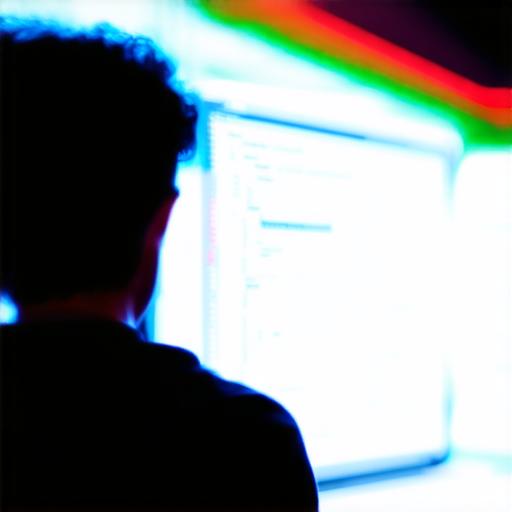
Exploring Blockchain: Best Courses for Aspiring Developers
What is Blockchain?
Blockchain technology is a decentralized, distributed ledger that records transactions across multiple devices and networks. It provides transparency, security, and immutability to data stored on it. The first and most well-known blockchain platform is Bitcoin, which uses blockchain technology for peer-to-peer online transactions.
Why Become a Blockchain Developer?
Becoming a blockchain developer can be highly rewarding. The demand for blockchain developers has been growing rapidly in recent years. According to a report by Hired, the average salary of a blockchain developer is $150,000 per year in the US. In addition, being a blockchain developer also requires problem-solving skills, creativity, and a passion for technology.
Top 5 Blockchain Courses for Aspiring Developers
- Udacity Nanodegree: Blockchain Developer
- Coursera: Introduction to Blockchain
- Pluralsight: Blockchain Fundamentals
- edX: Blockchain Essentials
- LinkedIn Learning: Blockchain Developer
1. Udacity Nanodegree: Blockchain Developer
Udacity offers a Nanodegree program in Blockchain Development, which is designed for developers with some prior programming experience. The program covers the basics of blockchain technology, smart contracts, cryptography, and blockchain development tools. Udacity also provides hands-on projects to give students practical experience with blockchain development.
2. Coursera: Introduction to Blockchain
Coursera offers an online course in Introduction to Blockchain, which is designed for learners with no prior knowledge of blockchain technology. The course covers the basics of blockchain technology, including cryptography, consensus mechanisms, and blockchain architecture. It also provides an overview of the various use cases of blockchain technology.
3. Pluralsight: Blockchain Fundamentals
Pluralsight offers a course in Blockchain Fundamentals, which is designed for learners with some prior knowledge of programming. The course covers the basics of blockchain technology, including smart contracts, cryptography, and blockchain development tools.
4. edX: Blockchain Essentials
edX offers an online course in Blockchain Essentials, which is designed for learners with no prior knowledge of blockchain technology. The course covers the basics of blockchain technology, including cryptography, consensus mechanisms, and smart contracts. It also provides an overview of the various use cases of blockchain technology, such as supply chain management and digital identity.
5. LinkedIn Learning: Blockchain Developer
LinkedIn Learning offers a course in Blockchain Developer, which is designed for developers with some prior programming experience. The course covers the basics of blockchain technology, including smart contracts, cryptography, and blockchain development tools. It also provides hands-on projects to give students practical experience with blockchain development.
Real-Life Examples of Blockchain in Action
1. Ethereum: A Decentralized Platform for Smart Contracts
Ethereum is a popular blockchain platform that enables the creation and execution of smart contracts. Smart contracts are self-executing programs that automatically enforce the terms of an agreement between two parties. Ethereum has been used in various industries, such as finance, supply chain management, and gaming. For example, Decentraland, a virtual reality platform built on Ethereum, enables users to create, buy, and sell virtual goods using smart contracts.
2. Hyperledger: A Blockchain Platform for Enterprise Applications
Hyperledger is an open-source blockchain platform that enables the creation of enterprise applications. It provides a secure, scalable, and private blockchain infrastructure for various industries, such as finance, healthcare, and supply chain management. Hyperledger Fabric, a popular Hyperledger project, enables the creation of customizable blockchain solutions for enterprise use cases.
FAQs
1. What is a blockchain?
A: Blockchain is a decentralized, distributed ledger that records transactions across multiple devices and networks.
2. Why become a blockchain developer?

A: Becoming a blockchain developer can be highly rewarding due to the growing demand for blockchain developers and the need for problem-solving skills, creativity, and passion for technology.
3. What is Udacity Nanodegree: Blockchain Developer?
A: Udacity offers a Nanodegree program in Blockchain Development, which is designed for developers with some prior programming experience and covers the basics of blockchain technology, smart contracts, cryptography, and blockchain development tools.
4. What is Coursera: Introduction to Blockchain?
A: Coursera offers an online course in Introduction to Blockchain, which is designed for learners with no prior knowledge of blockchain technology and covers the basics of blockchain technology, including cryptography, consensus mechanisms, and blockchain architecture.
5. What is Pluralsight: Blockchain Fundamentals?
A: Pluralsight offers a course in Blockchain Fundamentals, which is designed for learners with some prior knowledge of programming and covers the basics of blockchain technology, including cryptography, consensus mechanisms, and smart contracts.
6. What is edX: Blockchain Essentials?
A: edX offers an online course in Blockchain Essentials, which is designed for learners with no prior knowledge of blockchain technology and covers the basics of blockchain technology, including cryptography, consensus mechanisms, and smart contracts. It also provides an overview of the various use cases of blockchain technology.
7. What is LinkedIn Learning: Blockchain Developer?
A: LinkedIn Learning offers a course in Blockchain Developer, which is designed for developers with some prior programming experience. The course covers the basics of blockchain technology, including smart contracts, cryptography, and blockchain development tools. It also provides hands-on projects to give students practical experience with blockchain development.
Summary
Blockchain technology is becoming increasingly popular in various industries, and there is a growing demand for blockchain developers. If you are an aspiring developer looking to enter the world of blockchain, exploring the best courses for you is crucial. Udacity Nanodegree: Blockchain Developer, Coursera: Introduction to Blockchain, Pluralsight: Blockchain Fundamentals, edX: Blockchain Essentials, and LinkedIn Learning: Blockchain Developer are some of the top courses available that can provide you with a solid foundation in blockchain technology. By becoming a blockchain developer, you will have the opportunity to work on exciting projects and contribute to the growth of this innovative technology.



